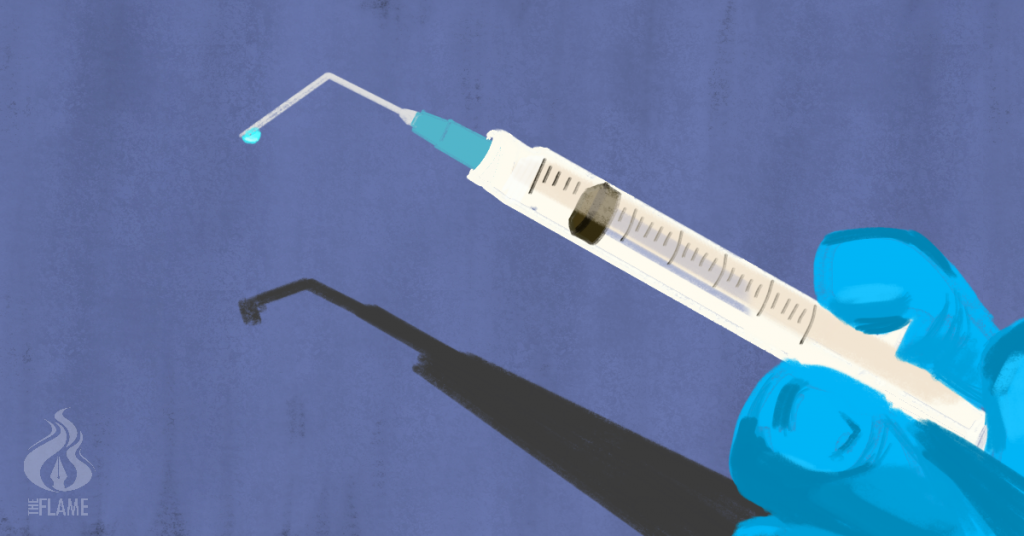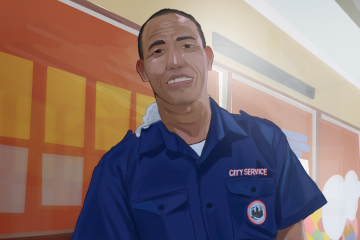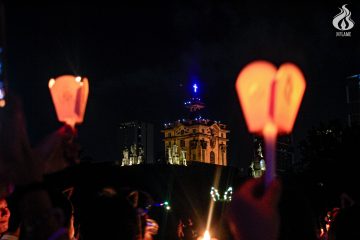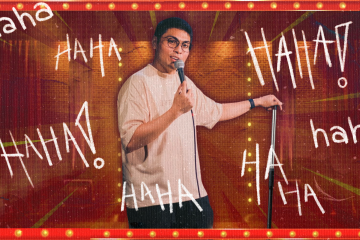
WHILE PEOPLE have the right to free expression, those who staged the Liwasang Bonifacio protest against mandatory vaccination last January were arrested or were bombed with water cannons.
However, the individuals who protested against what they called “medical martial law” were dispersed not for expressing what is now an unconventional view but for violating quarantine protocols. According to the police, the protesters, which numbered about 150 people, refused to wear face masks or present their vaccination cards, violating city ordinances and minimum health protocols set by the government.
But for JJ Villanueva, the dispersal was inconsistent with the freedom of speech guaranteed to Filipinos.
“They told us we had every right to express our opinions, and [then] one day they just bombed us with water and started arresting people,” JJ Villanueva, who opposes mandatory vaccination against COVID-19, said.
However, he clarified that he is only against the mandatory vaccination and not the jab itself, believing that he has the right to decide on matters related to his health.
“If other people want to receive the COVID-19 vaccine, they have every right to. But we should have every right to refuse it as well,” he said.
Consequences
The stand of Villanueva and his family remained the same even though the government had already administered around 150 million COVID-19 vaccine doses as of April 22.
His stance is similar to that of the eight percent of the 1,440 adults who told the Social Weather Stations last January that they won’t get the pandemic jab.
Instead of getting vaccinated, Villanueva resorted to alternatives like regularly taking vitamins and spirulina, an algae with strong antioxidant effects.
But such a choice has its consequences. Unvaccinated persons like Villanueva are barred from entering some public places like malls, restaurants, and some grocery stores that require presenting vaccination cards.
Fortunately for Villanueva, he lives near a local market that allows him to buy essentials.
“The Philippines’ COVID-19 response became about politics and not about health when vaccination hindered our ability to practice our rights. That includes access to places and free speech,” he said.
Confusing policies?
Adding to Villanueva’s skepticism about the mandatory vaccination are what he described as the “confusing” policies of local government units.
According to the interior department, a vaccine card is not required to enter malls in areas under the most lenient Alert Level 1, although establishments within malls may require proof of vaccination.
Villanueva said the “disunited” and “confusing” local policies are enough to put a level of doubt on the method by which the government is addressing the COVID-19 crisis.
“If there isn’t organization and unity in these policies, why should we trust other more invasive policies? ” Villanueva asked.
Villanueva admitted that his decision not to get vaccinated has strained his social relationships.
“There is high tension between me and those who have opposing views, even though I am open to finding a common ground [with them],” he added.
“Before I choose to get vaccinated, we must see a consensus on these four questions: is the vaccine experimental? Is COVID still transmittable after you get vaccinated? Do people get hurt because of the vaccine? And have we given the alternative treatment a chance?” he said.
Pointless debate
Dr. Emeritus Lulu Bravo, executive director of the Philippine Foundation for Vaccination, said it is pointless to argue with people like Villanueva because they lack science-based knowledge to understand the benefits of vaccines.
“How can you say that you can even challenge them when they are saying something that is not based on science? They did not study the actual science of vaccinology,” Bravo said.
She also regarded ‘anti-vaxxers’ as a “cult” whose ground principles are firmly established and cannot easily be swayed.
Reacting to Villanueva’s doubts, Bravo gave assurance that all COVID-19 vaccines follow a clinical trial that confirms safety.
“When vaccines are approved by a regulatory board this means that […] they have passed through safety checks, [and] that all the safety concerns have been addressed. [T]hey are good to be used,” the vaccine expert said.
“The benefit you can get from these vaccines far outweigh the risks, and it is usually the side effects that may come in as shown by the clinical trials,” she added.
While being vaccinated does not equate to having full protection against COVID-19, there are no drugs with 100 percent efficacy rates, Bravo said.
“The basic principle is that the benefits outweigh the risks. COVID has killed millions, [but] if not for the vaccine, it would have been more,” she explained.
The deaths tied to the vaccines, Bravo added, are purely “coincidental in nature.”
She gave assurance that the authorities had investigated these reported deaths, and that most of them are unrelated to the pandemic shots.
The Center for Disease Control (CDC) said reports of COVID-19 vaccine-related deaths are rare at 0.0024 percent. Since the rapid pace of vaccination included the elderly, there is already a higher baseline mortality rate unrelated to the vaccine, CDC’s Dr. David Shay said.
The health department has credited the downward trend in COVID-19 case rates to the government’s vaccination efforts and compliance with health protocols. As if April 5, a total of 66.23 million Filipinos or 73.53 percent of the target population have been fully vaccinated. The government aims to fully inoculate 90 million persons against COVID-19 by the end of June.
While majority of the Philippine population are already fully jabbed, officials have admitted that vaccine hesitation remains a concern, a phenomenon they blamed on disinformation.
Asked how one should treat anti-vaxxers, Bravo cited the need to just follow the science as studies suggest that the jabs’ benefits are greater than the risks. “Would you rather risk your life? Because COVID-19 kills,” she said. F – Lila Victoria Reyes



